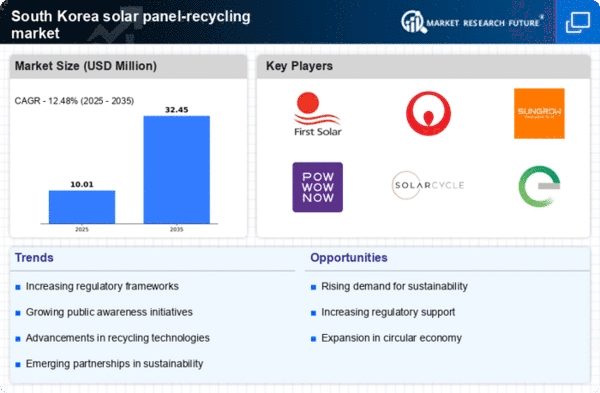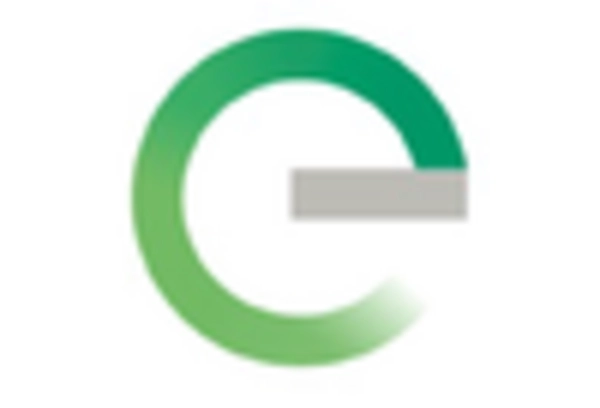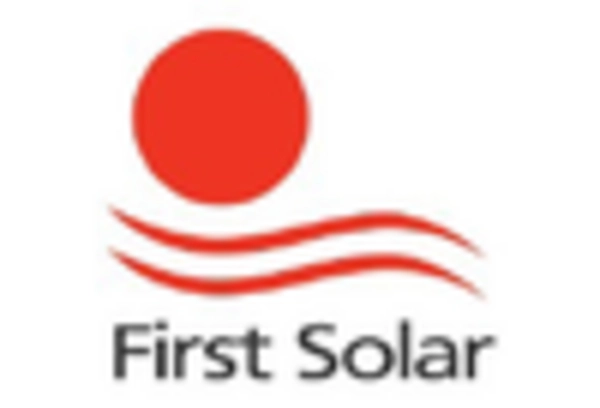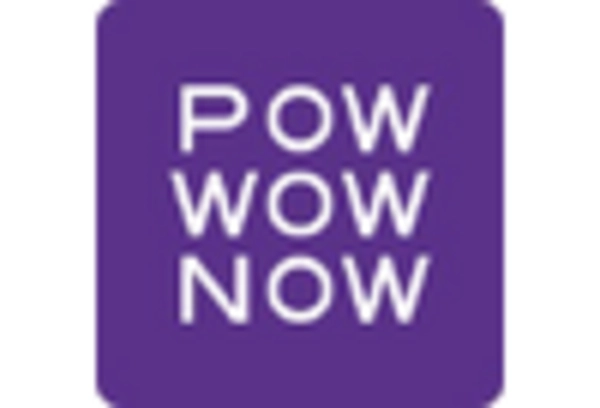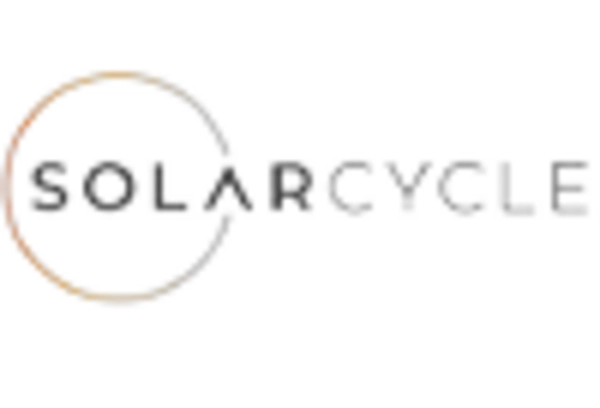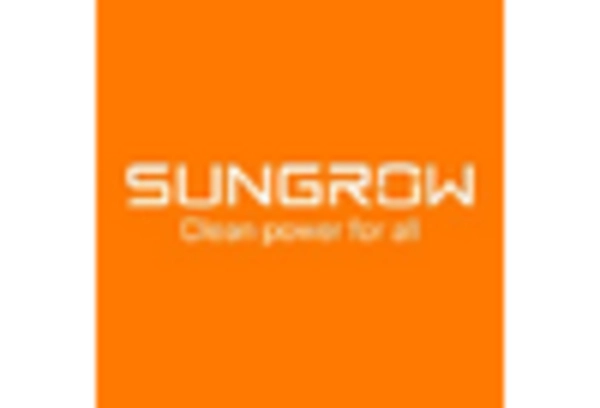Economic Incentives for Recycling
Economic factors play a crucial role in shaping the solar panel-recycling market. The South Korean government has introduced various financial incentives to encourage recycling practices among manufacturers and consumers. These incentives may include tax breaks, subsidies, and grants aimed at reducing the costs associated with recycling processes. For instance, the government has allocated approximately $50 million to support the development of recycling facilities and technologies. This financial backing is expected to stimulate growth in the solar panel-recycling market, making it more economically viable for companies to invest in recycling operations. Additionally, as the cost of raw materials continues to rise, the economic rationale for recycling becomes increasingly compelling, potentially leading to a more circular economy within the solar industry.
Rising Demand for Renewable Energy
The increasing demand for renewable energy sources is a significant driver for the solar panel-recycling market. As South Korea aims to transition towards a low-carbon economy, the government has set ambitious renewable energy targets, including a goal to generate 20% of its energy from renewable sources by 2030. This shift is expected to result in a substantial increase in the installation of solar panels, leading to a corresponding rise in end-of-life panels that require recycling. The solar panel-recycling market is poised to benefit from this trend, as more solar installations will inevitably lead to greater volumes of waste that need to be managed responsibly. Consequently, the market is likely to expand to accommodate the growing need for effective recycling solutions.
Increasing Environmental Regulations
The solar panel-recycling market is experiencing a surge in demand due to the tightening of environmental regulations in South Korea. The government has implemented stringent policies aimed at reducing waste and promoting sustainable practices. As a result, manufacturers are compelled to adopt recycling solutions to comply with these regulations. The South Korean Ministry of Environment has set ambitious targets for waste reduction, which includes a focus on electronic waste, particularly solar panels. This regulatory landscape is likely to drive investments in recycling technologies and facilities, thereby enhancing the overall capacity of the solar panel-recycling market. Furthermore, the potential penalties for non-compliance may incentivize companies to prioritize recycling initiatives, leading to a more robust market framework that supports sustainable development.
Public Awareness and Corporate Responsibility
Public awareness regarding environmental issues is increasingly influencing the solar panel-recycling market. As consumers become more informed about the environmental impact of solar panel waste, there is a growing expectation for companies to adopt responsible recycling practices. This shift in consumer behavior is prompting manufacturers to prioritize sustainability in their operations. In South Korea, corporate social responsibility initiatives are gaining traction, with companies actively promoting their recycling efforts to enhance their brand image. This trend is likely to drive demand for recycling services, as businesses seek to align with consumer values. Furthermore, educational campaigns aimed at raising awareness about the importance of recycling solar panels are expected to contribute to the growth of the solar panel-recycling market, fostering a culture of sustainability.
Technological Innovations in Recycling Processes
Technological advancements are significantly influencing the solar panel-recycling market. Innovations in recycling processes, such as improved separation techniques and enhanced material recovery methods, are making recycling more efficient and cost-effective. In South Korea, research institutions and private companies are collaborating to develop cutting-edge technologies that can extract valuable materials from end-of-life solar panels. For example, new methods have been developed that can recover up to 95% of silicon and other critical materials from solar panels. This not only reduces waste but also lowers the reliance on virgin materials, thereby supporting the sustainability goals of the solar panel-recycling market. As these technologies continue to evolve, they are likely to attract further investment and drive market growth.


